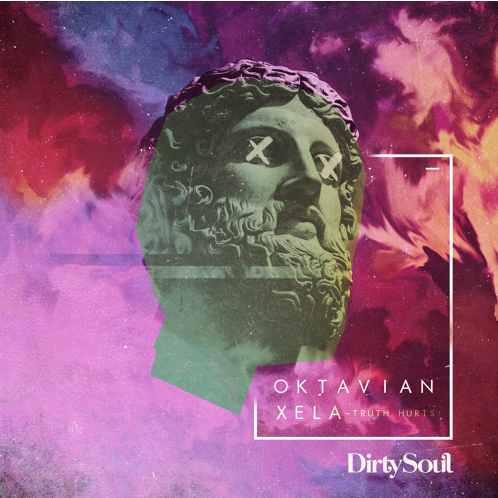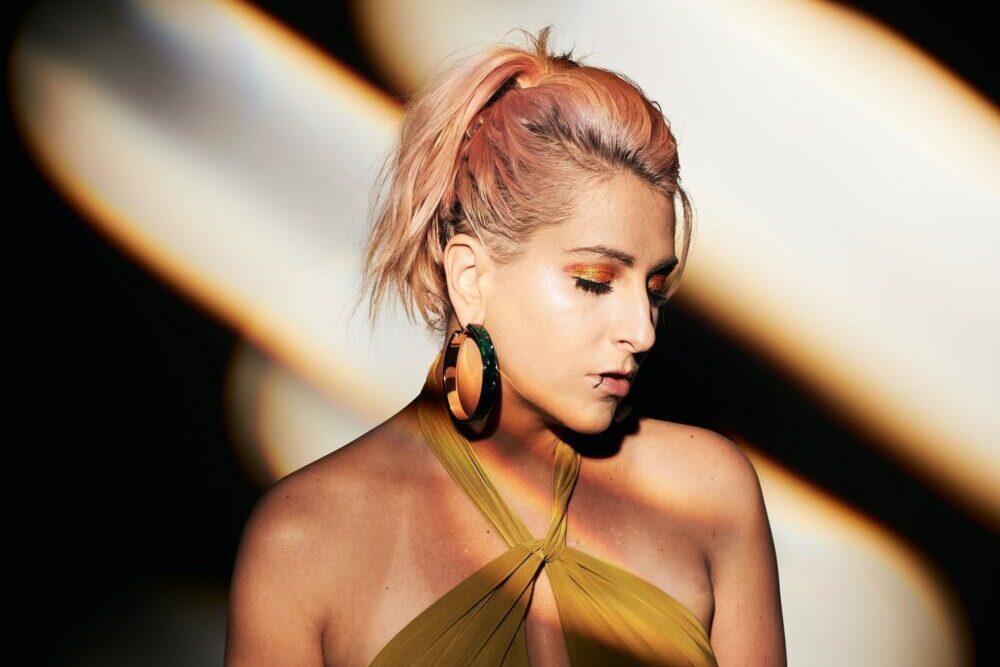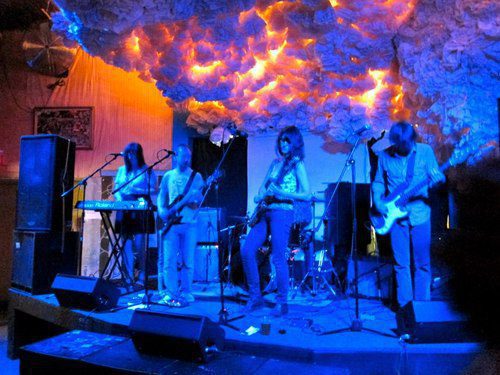Chelsea Collins Serves Up Classic Dirty Pop Anthem with “07 Britney”
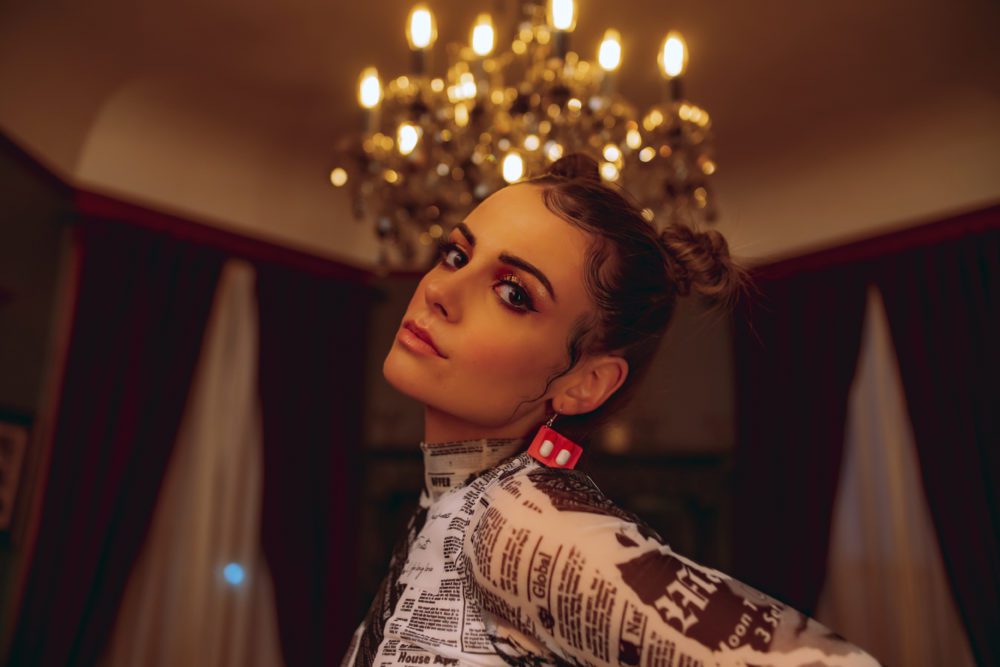

Without the distractions of work or a social life, everyone has a lot more time on their hands, and they’re getting particularly introspective about the albums and songs that influenced their sound palettes. The “30-day song challenge” and “10 days of 10 albums” have been rapidly trending on all platforms of social media. For over a decade, I’ve confessed my obsession to pop music. I love its escapist charm, addictive melodies, and the melodramatic fantasy. A good pop song leaves you feeling hopelessly optimistic – for two and a half minutes – and the early 2000s, often considered a golden era, still influences contemporary culture. Perhaps ironically, the world today feels a bit like what we anticipated 20 years ago… if Y2K had been a real tipping point.
I recently watched an episode of MTV’s Making The Video focused on *NSYNC’s “Pop.” Notably, the episode featured choreographer Wade Robson (who later became well-known for the harrowing story of child abuse he tells in Leaving Neverland) filling in for an unexpectedly injured Joey Fatone and thus saving the video. It left out rumors that Robson was responsible for breaking up Justin Timberlake and Britney Spears, who he had also worked with. At every turn, the mirage of the bubblegum masked the dark, complex undertones of the music industry in the early aughts.
With a bit of context and a strong affinity for Dirty Pop of the 2000s, I’d like to introduce rising star Chelsea Collins. The songwriter, producer, and multi-instrumentalist re-imagines pop not only as a thrilling, twisted, and topsy-turvy fantasy – but through a lens of autonomy. At 21 years old, Collins is calling her own shots, showing how far the industry has come.
Catching the attention of HITCO Founder and C.E.O. L.A. Reid during a 2019 studio session, she inked a deal with the label. She also signed with S2 for publishing, the company owned by Savan Kotecha (who co-wrote four tracks on Arianna Grande’s Thank U, Next) and Sonny Takhar. After introducing herself on her first single “Tobacco and Tears,” Collins kicked off 2020 with “Used to be (L.O.V.E.),” tallying over 4.5 million streams, 31k TikTok creates and 625K views in under a month.
Collins recently released the sizzling track “07 Britney,” paying homage to the star’s most troubled year, in which Spears released Blackout amid a custody battle with estranged husband Kevin Federline, shaved her head, and eventually landed in rehab. Taking a lighter approach, the DIY music video shows Collins playing closet dress up across different scenes around Los Angeles, honoring the iconic namesake in the title. On a recent call with the kind-hearted, bubbly Collins, I had the pleasure of uncovering more to the rising star than meets the eye.
AF: How did you begin your musical journey?
CC: Honestly music was something that I picked up super early on. I started theatre when I was four or five. At the same time I started doing classical piano, and always naturally gravitated towards music. It was engraved that it would continue to be obsessed with music. I always naturally gravitated towards it. My dad would put me in sports – I was like “No! I want to sing!” When I was in middle school I started writing and that opened my eyes to everything. I took my love for singing and merged it with piano composition. I thought, “Woah, I can make my own songs the same way all of my idols do.” I started inviting all my friends over, and being their therapist by asking them about their lives and writing about them. It just became a thing that eventually led to producing. It’s weird as you get older and look back at the little tiny things you used to do as a kid, and how much they affect you as an adult. Little moments – life imitates art and all of these little things I did as a kid, it’s actively happening in real life. Sometimes it can be super weird.
AF: How did you get into music production? What resources did you have? Are you the solo producer on the majority of your tracks?
CC: A few of them I’ll make them alone. There are two people I love to produce with – one is my brother, and then my friend Chris. I start the bulk alone and then when the tiny parts come another producer can give a fresh perspective. I had so many visions in my head of what I wanted things to sound like. When I would talk to producers around fifteen, sixteen, I didn’t have the language or terminology to get my ideas a cross. You wait months to get productions back and then it’s just not what you envisioned, and I knew deep down I was doing piano for so long – there’s no reason I can’t do this. Ya know? I think the biggest part of starting out in music production was mentally pushing myself and believing in myself that I could do it. I was always on GarageBand producing demos, but one day I just locked myself in my room with my brother, because we both wanted to learn how to produce. We literally didn’t leave until we figured it out. My mom would come in and bring us food, we’d close the door again and say “Alright mom, we gotta get back to work!” It really changed everything because from there it helps you tie together your sound.
AF: What’s the age difference between you and your brother?
My brother is only a year and a couple months older than me, so we operate as twins. It’s dope to have someone by my side to get through the music industry. It’s definitely a crazy industry.
AF: Would you say you’ve made most of these songs together?
CC: Production wise, not all of them, but writing wise, yes. It’s kinda like when we were kids and used to write on guitar or piano in the piano room.
AF: What’s your technical process when it comes to recording vocals?
CC: Honestly it’s pretty simple – I had a set up in a spare room but my neighbors would get mad because it was connected to a wall in a townhouse. I literally just set my mic up on the edge of my bed so I could just sit on the edge of my bed or stand near it and put it on the desk or whatever. I just record myself. What’s super weird is that when you find the microphone you like – when you’re in a studio and an engineer is cutting your vocal there’s something more comforting about being in your room and using that one microphone you know you’re going to sound good on.
AF: Do you play around with a lot of vocal layering and stacks? Or are you more of a purist, recording over and over to get that perfect single take?
CC: It depends on the song really. I do think ad-libs and background vocals are incredibly fun because it becomes another riff in the song. If it’s minimal one take will be better, but if it’s an anthem I’ll want everyone around the microphone to chant.
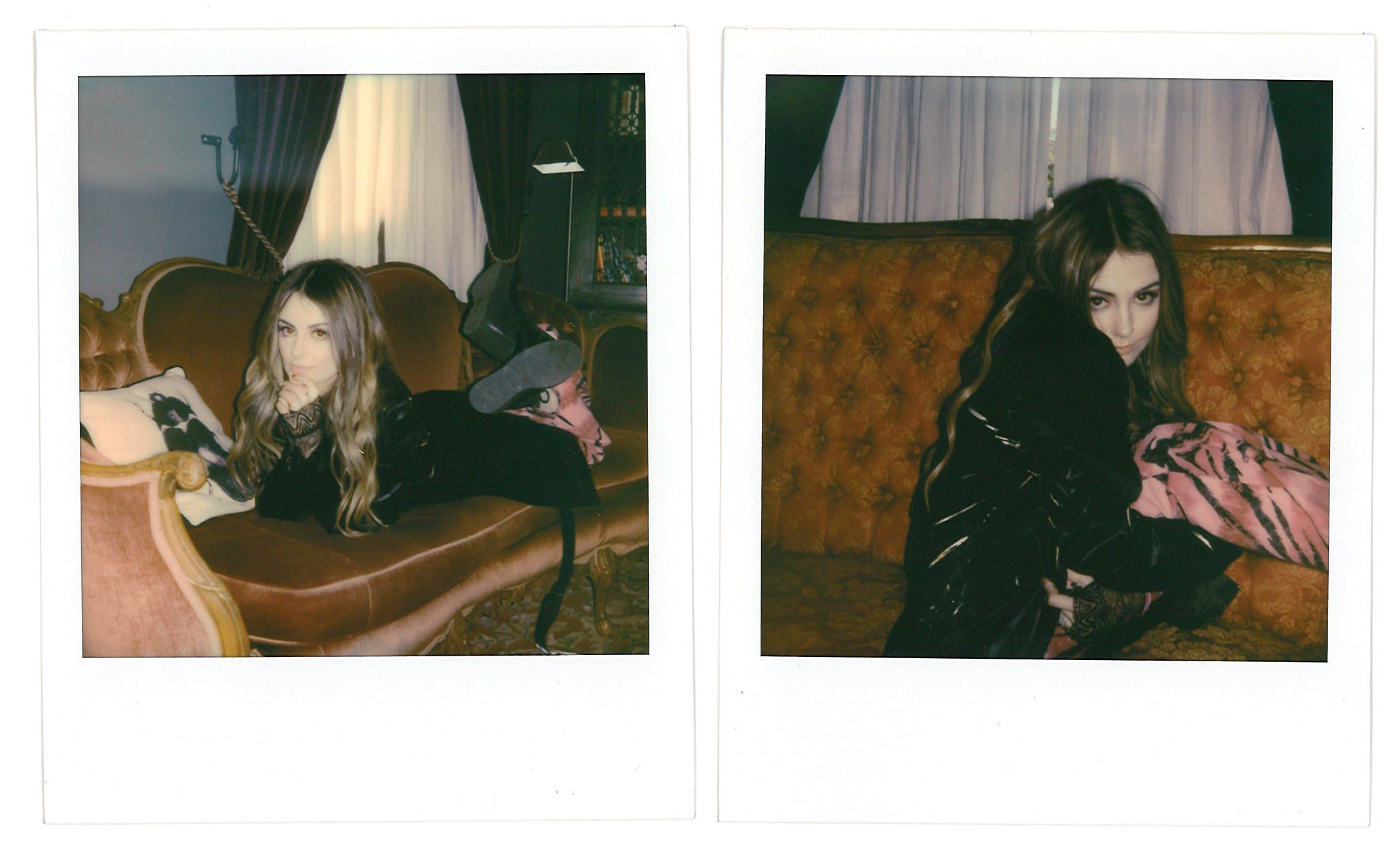
AF: The music industry’s greatest gender disparity remains behind the scenes. As a young female artist, have you experienced sexism in professional studio settings?
CC: There have definitely been times where I’ve started talking about my role in what I do. There’s been situations where for months, no matter how many times I’d explain I produced a song myself, the response after they decide they really like it is: “Oh so your brother produced this?” They automatically assume that you’re incapable of doing something independently. I’d had experiences showing up to the studio, maybe working with someone who’s had more commercial success; they’ll completely mute you, make you feel like your voice doesn’t matter, and it’s really messed up. When I think of it, literally a person working at a pet store who’s not even not pursuing music could be the most talented writer or producer. You can’t be that close-minded. People all around the world have so much talent to offer. To shut someone off because of their gender or experience is ignorant. So many people have started off by posting YouTube videos in their bedroom and have gone on to become incredibly amazing and well-established writers. Starting out, so many people didn’t give them a chance.
AF: You’re also really influenced by an artist like Britney Spears, who isn’t exactly a DIY icon. I love her obviously, and grew up in the generation of Britney Fandom. You were so young then – why sing about Britney’s meltdown and comeback period rather than her age of teenage innocence? Do you feel drawn to her as a darker force in pop, or a tragic hero?
CC: When she was releasing her earlier stuff I was just being born! Maybe around middle school, I started to really get into her older records and her world in general. Her visuals were just so lively, and she as a person was so magnetic. You felt like you knew her and you connected with her so much. I was pretty closed-off as a kid, and for some reason just watching her interviews and music videos made me feel happy. There are so many other people in the world that felt that way. She just has such a charm to her, and amid all of what she went through she was always able to push through it, and fight back by coming up with stronger concepts and cooler songs. What goes hand in hand with that is that Max Martin was so essential as a partnership. It’s crazy to hear the story behind “Baby One More Time,” and how it was going to be a TLC song. I think the universe is cool, and it brings people together. I love thinking about Max Martin cutting this young new artist’s song, without knowing that artist and song would go on to become iconic. Even on Tik Tok there are so many versions of people dancing to that song, and they really know the choreography. I was the “Baby One More Time” Britney for Halloween. You just never know.
AF: That song has such a magnetic pull! What do you think of TikTok? How have you utilized it?
CC: I actually love TikTok, especially now, because I feel like there are so many different genres in it. Whatever type of person you are, you can find content that you relate to. I think the aspect of social media that can be perceived as negative is more so if you’re portraying yourself as someone you’re not, and if you’re unhappy behind the scenes. It can be a really useful tool to connect with your fans and meet cool people with similar interests all around the world. As long as you utilize it as a positive thing and you’re not scared to be yourself on it, then it’s a really beneficial thing.
AF: What made you decide to wholeheartedly launch an artist project instead of using your production/writing skills behind the scenes? Did you always write songs with the intention to perform them?
CC: Performing is something I’ve always loved to do. I think for me growing up I was pretty shy and not really the most open person. Being able to have an artist project, I can share my own experiences and take all of my influences of music production growing up, and the types of sounds I liked to make a cohesive thing. I think it’s so nice when you crack the code, and listen to five songs in a row and they all make sense together. Nowadays you should never have a limit yourself. You can be a writer, artist, producer – I even want to be a coder! There really is no limit.
AF: How do you bring early 2000s fashion into your current style?
CC: It’s fun to try and modernize certain things – the really early ’00s Paris Hilton and Britney Spears in their fun graphic tees. In that era of fashion it was cool to see how two complete opposite styles went together – like the Avril Lavigne-type style with the girly preppy school girl skirts. Now that I’m older I like to combine them and push them together. Fashion is such a fun way to creatively express yourself.
AF: What advice can you give to other women trying to break the mold by being creatively independent in the music industry?
CC: Number one is to protect your art because people will sometimes try to take advantage of it. Number two, you have to disregard the opinion of the people who don’t matter because they can make you feel down and harder on yourself. Use that as fuel and motivation.
Follow Chelsea Collins on Facebook for ongoing updates.

